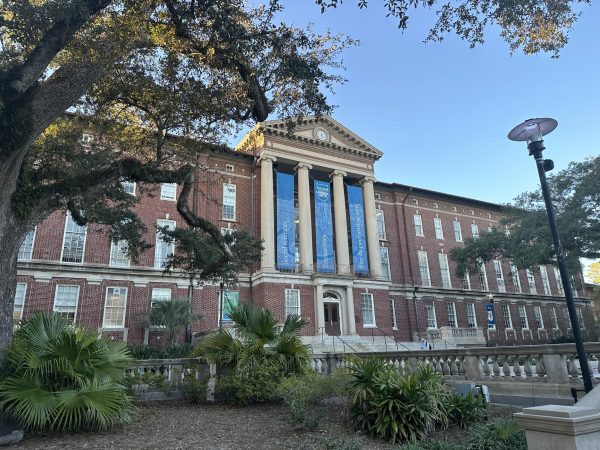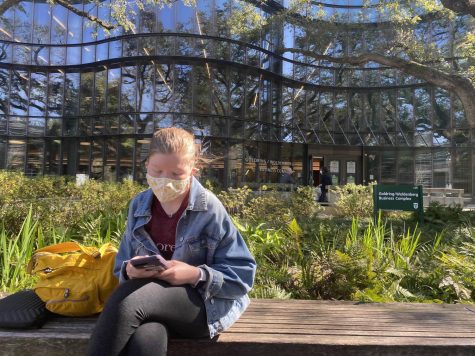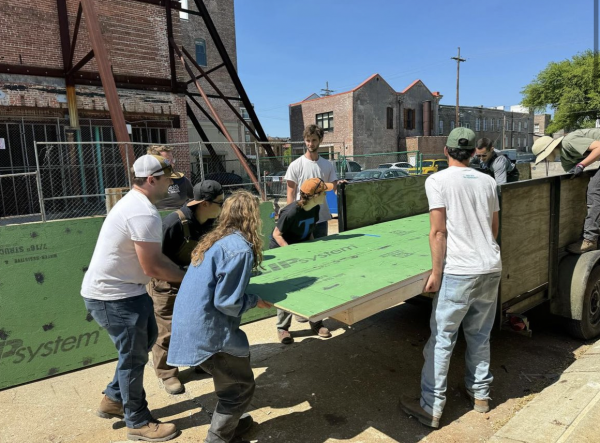Polarized groups reduce participation
November 11, 2015
This is an opinion article and does not necessary reflect the views of The Tulane Hullabaloo.
There are a number of reasons why student organizations do not always get the support or results they desire. Some responsibility lies within club administration, while some of the cause may be attributed to weak platforms. Goals set by student organizations, however, often fall short due to the attitude of the student body. The student body, both as a whole and within established organizations, hinders its own progress and prevents other groups from creating change and action. The general student body demonstrates disinterest in important issues, and only the same few students consistently advocate for what they believe in. Even these more passionate students, however, often advocate for their own causes in ways that reduce dialogue and increase polarization.
As organized groups, students tend to promote their own beliefs by suppressing the voices of others. This can be seen in counter-protests, and most recently the alteration of one club’s chalkings on McAlister Drive. Everyone is entitled to their own opinion. Clubs and student organizations need to learn to express themselves and fundraise separately and freely, without fear of another group trying to tear them down.
“There’s a general lack of respect amongst student organizations in general, not necessarily just towards us,” said Sophomore Abrania Marrero, external vice president of Tulane Students for Life.
There must be an open dialogue, allowing groups with opposing opinions to coexist. This perception that different organizations are at war with each other is counterproductive on both sides and shuts out other interested potential members. Advocating one voice by suppressing another simply creates a cycle of retaliation in which nothing gets accomplished.
As individuals, students tend to be apathetic towards social and political issues. Many identify as “socially liberal, but fiscally conservative.” This can make for an apathetic campus as students are somewhere in the middle and will not support causes or events that are extremely liberal or extremely conservative because they don’t fit in either box. Students tend to forget that there are infinite opportunities to identify issues and create positive change within the Tulane community, or even the world, that have nothing to do with their political affiliations. From human rights groups to cultural clubs and service projects, there are many ways to make change.
The same core group of students, however, seem to make up every club with similar lines of thinking. For example, according to Sophomore Rachel Robertson of Tulane College Democrats, the same hundred or so students are involved in clubs such as Divest, Students Organizing Against Racism and Students United for Reproductive Justice. Tulane has a reputation for the involvement of its students, but that involvement seems to be at the surface. Many students seem to sit on the sidelines of the infamous Tulane bubble, uninvolved and uneducated about the issues around them.
It may be easy for students to become self-absorbed, focusing only on passing classes and getting wristbands to frat parties, but it is important for students to educate themselves about the issues both in the New Orleans community and around the world. Tulane students are at a huge advantage. Our voices are powerful because we are young, inventive and passionate, attending one of the most elite colleges in the country. These voices must not side idle while the rest of the world fights for action and change.
The Tulane student body needs to play a more active role in the promotion of a respectful environment in which everyone’s opinions are voiced freely. As individuals, we must identify causes that inspire us to create change and get involved. We must not only educate ourselves about the issues but take action towards them as well. As established groups, we must respect opposing views and allow for a more open, inclusive dialogue to take place on campus. In doing this, the student body overall might find it easier to find and defend their own beliefs.
Tess is a freshman in Newcomb-Tulane College. She can be reached at [email protected].






















Leave a Comment